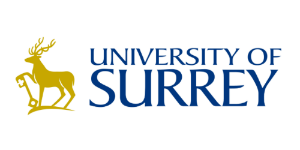University of Surrey
Guildford, Surrey, UK
Full-time or Part-time Study
12 months Full-time; 60 months Part-time.
Why
Surrey?
We are one of the leading institutions developing nanotechnology and the next
generation of materials and nanoelectronic devices. Taught by
internationally-recognised experts within the University’s Advanced Technology Institute (ATI), on this programme you
will discover the practical implementation of nanoscience and quantum
engineering, nanomaterials and nanotechnology. You will gain specialised skills
through an individual research project within our research groups, using
state-of-the-art equipment and facilities.
The ATI is a £10 million investment in advanced research and is the flagship institute of the University of Surrey in the area of nanotechnology and nanomaterials. The ATI brings together under one roof the major research activities of the University from the Department of Electronic Engineering and the Department of Physics in the area of nanotechnology and electronic devices. The 2008 Research Assessment Exercise (RAE) has reconfirmed Surrey’s pre-eminent position as amongst the very best research-led electronic engineering departments in the UK.
Programme
overview
Nanotechnology is a term that has captured the public imagination and lies at
the heart of the transistor found in every computer, laptop and mobile phone.
It’s the key to unlocking renewable energy supplies and promises new and
lighter materials with added strength.
The aim of this one-year MSc programme is to show how nanotechnology and nanomaterials can be used for our benefit with real-world applications. The programme is designed to provide you with the knowledge, skills and practical experience to understand how nanotechnology can change our lives.
Taught by internationally-recognised experts within the University’s Advanced Technology Institute (ATI), the programme has as its broad theme the practical implementation of nanoscience and quantum engineering, nanomaterials and nanotechnology. The programme covers the fundamentals behind nanotechnology and moves on to discuss its implementation using nanomaterials (the advanced tools of nanotechnology which allow us to see at the nanoscale) before discussing future trends and applications.
You will gain specialised, practical skills through an individual research project within our research groups, using state-of-the-art equipment and facilities. Completion of the programme will provide you with unique skills to further your career in this rapidly emerging field.
Why not read about past and present student experiences of our electronic engineering programmes, including Christopher Lord, Christos Merkouris and Prashant Butani?
Module overview
For the award of an MSc degree, a total of 180 academic credits is required. Over the course of two semesters, you will undertake study in a total of eight modules, each worth 15 credits. In the final semester, a 60-credit individual research project will be undertaken using the facilities within ATI. The final semester project will be undertaken in our laboratories such as the clean-room, the nanoelectronics laboratory or the optical characterisation suite. This provides an opportunity to demonstrate the application of nanotechnology, test critical assumptions, develop a new system or device, or model and predict effects at the nanoscale. Recent projects have included the study of graphene, carbon nanotube composites, laser diode characterisation and liquid crystals.
Compulsory modules:
- Nanoscience and Nanotechnology
- Molecular Electronics
- Nanofabrication and Characterisation
- Nanoelectronics and Devices
- Nanophotonics Principles & Engineering
- Renewable Energy Technologies
Optional modules:
- RF and Microwave Fundamentals
- Silicon Device Technology
- RF Systems and Circuit Design
- Optoelectronics
- Microwave Engineering
Entry requirements
An honours degree in electronic engineering or physics. Our minimum entry level is a 2.2 from a good UK university, or overseas equivalent. Material science graduates with a background in advanced materials or those with strong industrial experience will also be considered.
How To Apply
For more information on the course and how to apply please visit the course website.
General
enquiries:
+44 (0)1483 681 681
Admissions
enquiries:
+44 (0)1483 682 222
admissions@surrey.ac.uk
